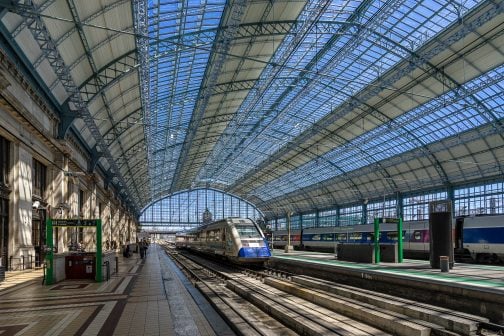Although rail travel across Europe is experiencing a boom—with new routes, rising demand, and fresh competition—South Africans are unlikely to benefit from lower fares anytime soon.
Despite the growing supply and increased competition in the European and UK rail markets, prices for South African travellers are expected to remain high—and may even rise in some cases.
Corné Kotze, Senior Rail Specialist and Product Manager at Europe by Train (the GSA for Trenitalia), explains that the absence of built-in commission in rail fares means intermediaries must add their own markups, inflating prices for consumers. “This is a major factor driving up costs,” she says.
High operating expenses and additional service fees imposed by train operators further contribute to the overall price of tickets—making European rail an expensive option, particularly when booked from South Africa.
Surging Demand Across Europe
According to UK high-speed rail operator London St. Pancras Highspeed, cross-Channel train travel is projected to triple over the next 15 years—from 11 million to 35 million passengers annually.
“This marks the biggest transformation in international high-speed rail in a generation,” said Robert Sinclair, CEO of London St. Pancras Highspeed. He attributes the trend to passengers increasingly favouring rail over air for its climate benefits and the convenience of direct city-centre connections.
Kotze notes that demand is also growing among South African business travellers, particularly with looming regulations that may require carbon emissions reporting. Leisure travellers, however, often need more information and education about the advantages of Europe’s well-connected rail networks, including their environmental benefits.
Competition and New Operators
Europe’s rail sector, traditionally dominated by state-run carriers such as Deutsche Bahn, SNCF, Eurostar, and Renfe, is now seeing new entrants.
The Channel Tunnel—currently underutilised at just 50% capacity—is operated solely by Eurostar. However, the UK Office of Rail and Road has approved new competitors, including Trenitalia, Virgin Trains (backed by Richard Branson), and startup Gemini Trains.
An agreement between St Pancras and Eurotunnel aims to improve travel times, enhance schedule coordination, and promote more cross-channel services. “With collective action, we can triple passenger volumes, reduce fares, and unlock new destinations,” said Sinclair.
Limited Benefits for South African Travellers
Despite these positive developments, Kotze is sceptical about the near-term impact for South Africans.
Local travel agents still face limited access to rail systems due to the lack of direct partnerships with European operators. Without official GSAs (General Sales Agents), support is minimal—especially for post-sales services like changes, cancellations, or refunds.
“Some agents can only assist with the initial booking, and then refer travellers to the rail companies directly for any further assistance,” Kotze explains.
In a further setback, South Africa’s last Rail Europe GSA, World Travel, ceased operations at the end of March, as reported by Travel News.
While Europe by Train is working to launch an online booking system offering supplier-linked fares, Kotze says many agents still prefer human assistance—especially for more complex bookings. Without stronger local infrastructure and support, widespread adoption of European rail travel in South Africa will remain limited.




